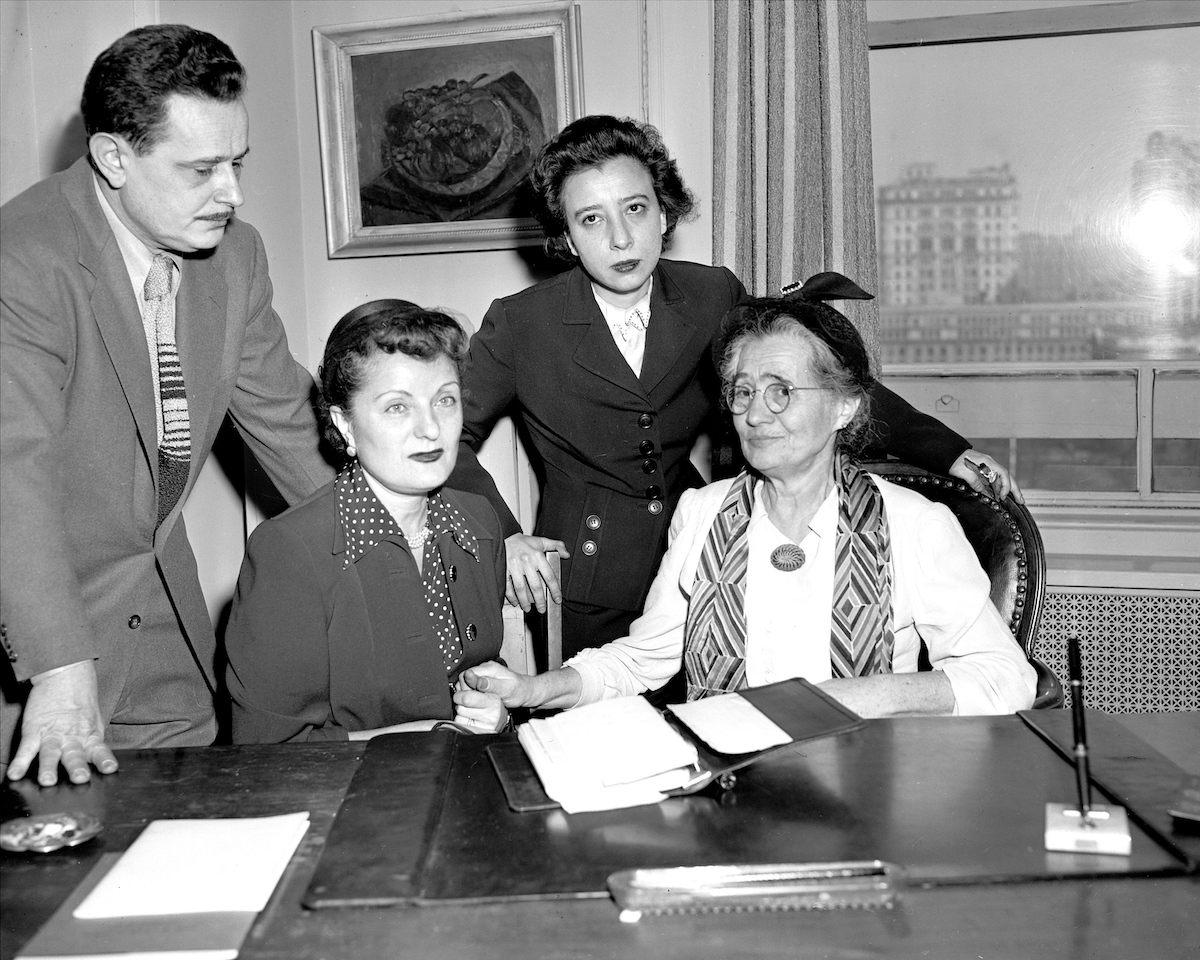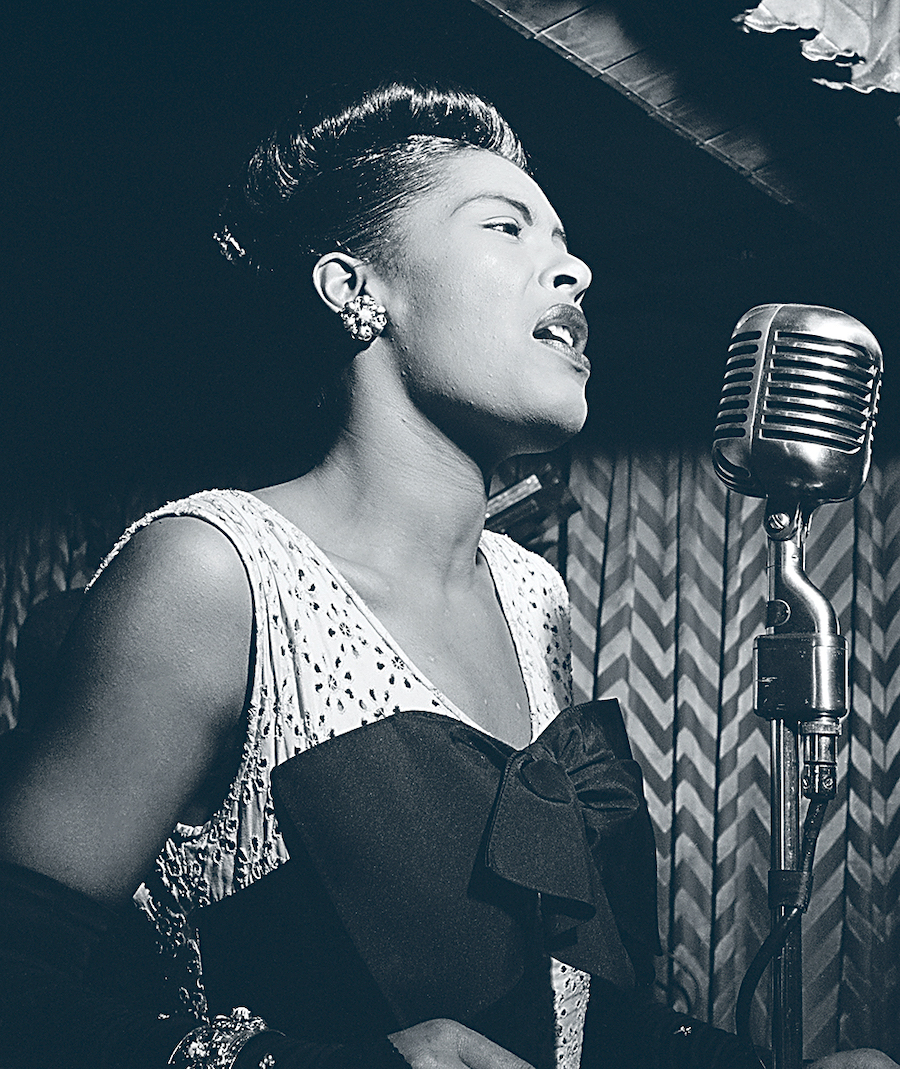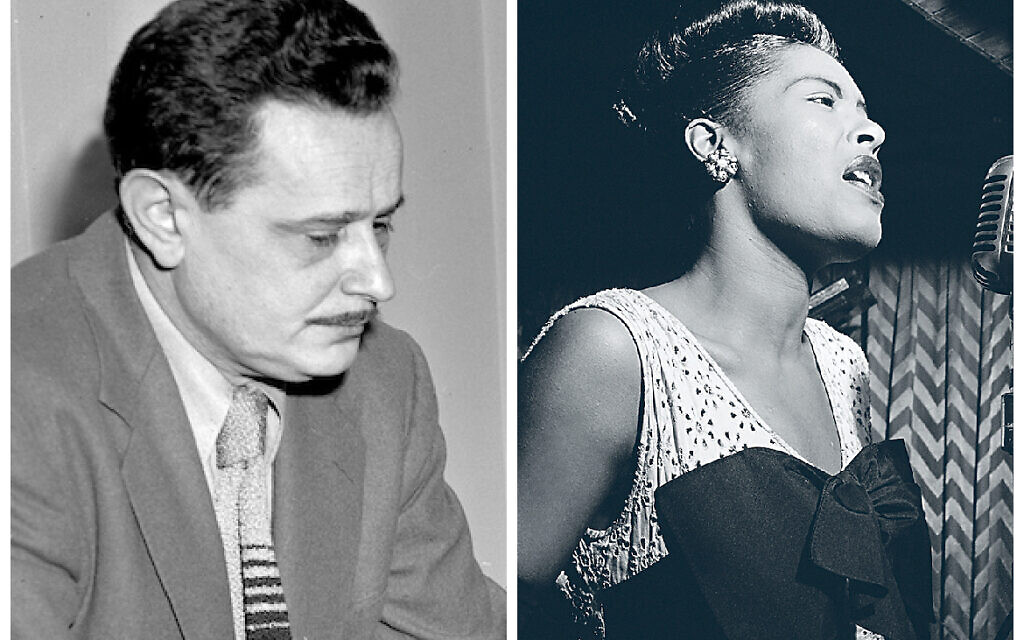The Jewish composer behind Billie Holiday’s ‘song of the century’
When Billie Holiday became famous for singing Strange Fruit, not many knew the story behind its Jewish composer and lyricist, Abel Meeropol
Haunting and controversial, 1930s jazz ballad Strange Fruit did more than just propel Billie Holiday’s fledgling music career – it sparked a debate that became the beginning of the civil rights movement.
While the song was written into history books for perpetuity, including being inducted into the Grammy Hall of Fame in 1978, the story behind Strange Fruit’s Jewish composer and lyricist, Abel Meeropol, has largely been forgotten over the decades.
Interest in the song has now resurged thanks to Sky Original’s new biopic, The United States vs Billie Holiday, which places Strange Fruit right at the heart of the plotline.
Get The Jewish News Daily Edition by email and never miss our top stories Free Sign Up
Holiday (played by Andra Day, who won a Golden Globe for best actress in the role) was adored by fans across the globe as one of the greatest jazz musicians of all time.
But she was also plagued by drug and alcohol abuse and endured harassment at the hands of the FBI, which viewed Strange Fruit as incendiary and likely to cause civil unrest.

In an effort to take her down, they assigned a black agent named Jimmy Fletcher (played by Trevante Rhodes) to track and arrest her, but the pair become romantically involved – resulting in Holiday falling victim to the greatest betrayal of all.
Through it all, the lyrics of Strange Fruit – which was denoted as the “song of the century” by Time magazine in 1999 – continued to resonate and give her strength even as she endured addiction and career setbacks.
The iconic song began life in 1937 as a poem written by Meeropol, a Jewish writer, teacher and songwriter of Russian-Jewish extraction, under his pseudonym Lewis Allan – which was taken from the names of his two stillborn sons.
His emotions were stirred after seeing Lawrence Beitler’s graphic photograph of the 1930 lynching of Thomas Shipp and Abram Smith in Marion, Indiana.
Three young black men had been accused of shooting a white man. A mob came to the town jail, demanding to be let in. The sheriff refused, but people took sledgehammers to the jail doors.
They carried away two of the young men, beat them and hung them from a nearby tree.
Meeropol could not get the horrific image out of his head. His poem is full of explicit imagery of black people explaining that “Southern trees bear a strange fruit, blood on the leaves, blood on the root … strange fruit hanging on the poplar trees.”
The evocative poem was first published under the title Bitter Fruit in January 1937 in a teachers’ union magazine, before Meeropol set it to music.
First performed by Meeropol’s wife, Anne, and their friends, it began to gather some momentum at protest concerts before it was introduced to Holiday.

Barney Josephson, the proprietor of Café Society, the first racially integrated nightclub in the United States, heard the song and brought it to Holiday’s attention.
According to journalist David Margolick, who wrote Strange Fruit: The Biography of a Song, Holiday performed it at the club for the first time in 1939 with a certain degree of trepidation, fearing how the crowd might react.
The waiters silenced the room, the lights were dimmed and she closed her eyes as she began to perform.
She later wrote in her autobiography that her father, Clarence, died as a result of being denied medical treatment for a fatal lung disorder and that Strange Fruit was a stark reminder of racial prejudice.
Holiday wrote: “It reminds me of how Pop died, but I have to keep singing it, not only because people ask for it but because, 20 years after Pop died, the things that killed him are still happening in the South.”
While her producers at Columbia found the song too controversial, Commodore records agreed to record it on 20 April 1939. It remained in her repertoire for the next two decades and was subsequently covered by Nina Simone among other artists.
Meeropol continued writing songs, including the Frank Sinatra and Josh White hit, The House I Live In, which described a utopian America where people of all races live in peace and harmony.

Billie Holiday, 1947
Sinatra starred in a short film based on the song in which he chases away some boys who are harassing a Jewish child then sings this song to a group of children.
In the film, Meeropol’s line about blacks and white was excised, much to the author’s anger.
Strange Fruit, The House I Live In and the Peggy Lee hit, Apples, Peaches and Cherries, provided most of the royalty income for Meeropol’s family.
Meeropol, who died in 1986 at the age of 83, was also a communist and sympathetic to the plight of Julius and Ethel Rosenberg, the Jewish couple convicted of spying for the Soviet Union.
Having been left orphaned following their execution in 1953, their sons Robert and Michael were adopted by the songwriter and formally changed their surname to Meeropol.
- The United States vs Billie Holiday is available now on Sky Cinema and NOW TV
Strange Fruit
Southern trees bear a strange fruit
Blood on the leaves and blood at the root
Black bodies swingin’ in the Southern breeze
Strange fruit hangin’ from the poplar trees
Pastoral scene of the gallant South
The bulgin’ eyes and the twisted mouth
Scent of magnolias sweet and fresh
Then the sudden smell of burnin’ flesh
Here is a fruit for the crows to pluck
For the rain to gather
For the wind to suck
For the sun to rot
For the tree to drop
Here is a strange and bitter crop
Songwriter: Lewis Allan. © Edward B Marks Music Company

Thank you for helping to make Jewish News the leading source of news and opinion for the UK Jewish community. Today we're asking for your invaluable help to continue putting our community first in everything we do.
For as little as £5 a month you can help sustain the vital work we do in celebrating and standing up for Jewish life in Britain.
Jewish News holds our community together and keeps us connected. Like a synagogue, it’s where people turn to feel part of something bigger. It also proudly shows the rest of Britain the vibrancy and rich culture of modern Jewish life.
You can make a quick and easy one-off or monthly contribution of £5, £10, £20 or any other sum you’re comfortable with.
100% of your donation will help us continue celebrating our community, in all its dynamic diversity...
Engaging
Being a community platform means so much more than producing a newspaper and website. One of our proudest roles is media partnering with our invaluable charities to amplify the outstanding work they do to help us all.
Celebrating
There’s no shortage of oys in the world but Jewish News takes every opportunity to celebrate the joys too, through projects like Night of Heroes, 40 Under 40 and other compelling countdowns that make the community kvell with pride.
Pioneering
In the first collaboration between media outlets from different faiths, Jewish News worked with British Muslim TV and Church Times to produce a list of young activists leading the way on interfaith understanding.
Campaigning
Royal Mail issued a stamp honouring Holocaust hero Sir Nicholas Winton after a Jewish News campaign attracted more than 100,000 backers. Jewish Newsalso produces special editions of the paper highlighting pressing issues including mental health and Holocaust remembrance.
Easy access
In an age when news is readily accessible, Jewish News provides high-quality content free online and offline, removing any financial barriers to connecting people.
Voice of our community to wider society
The Jewish News team regularly appears on TV, radio and on the pages of the national press to comment on stories about the Jewish community. Easy access to the paper on the streets of London also means Jewish News provides an invaluable window into the community for the country at large.
We hope you agree all this is worth preserving.
-
By Brigit Grant
-
By Laurent Vaughan - Senior Associate (Bishop & Sewell Solicitors)
-
By Laurent Vaughan - Senior Associate (Bishop & Sewell Solicitors)
-
By Laurent Vaughan - Senior Associate (Bishop & Sewell Solicitors)
-
By Laurent Vaughan - Senior Associate (Bishop & Sewell Solicitors)






















